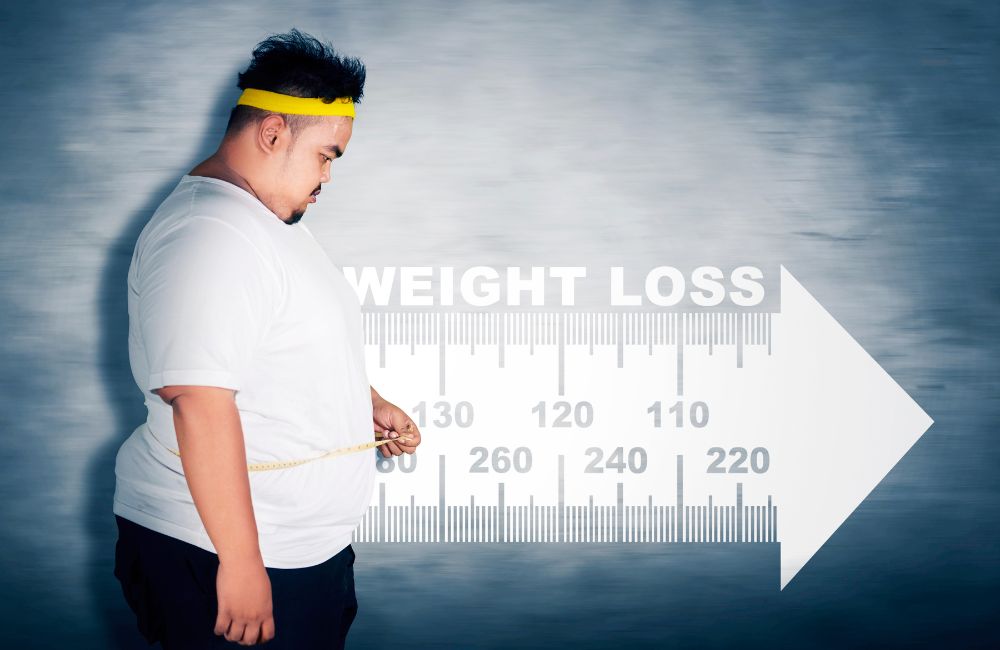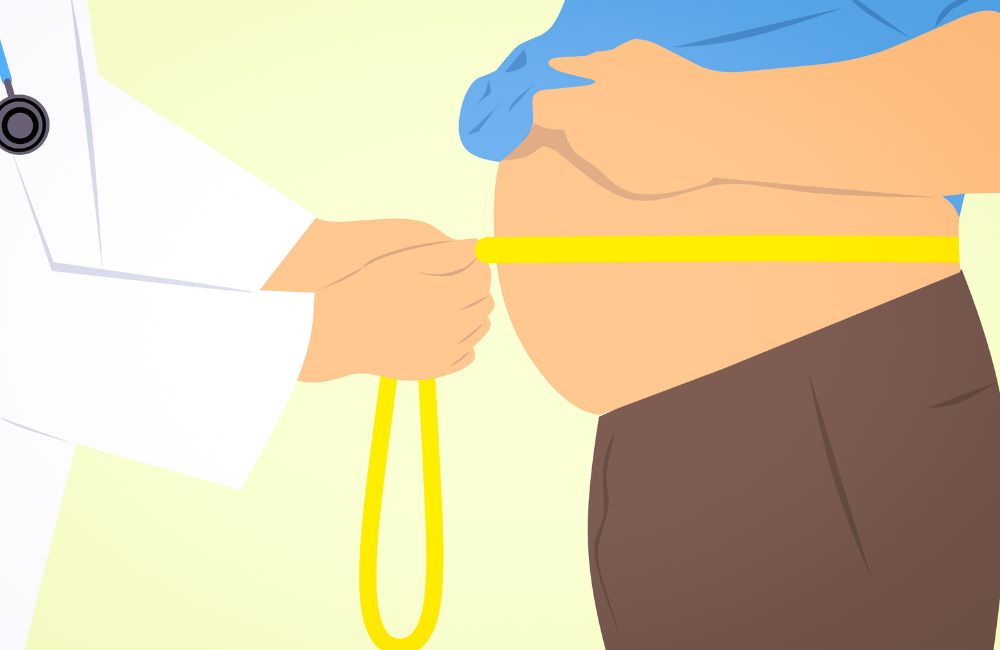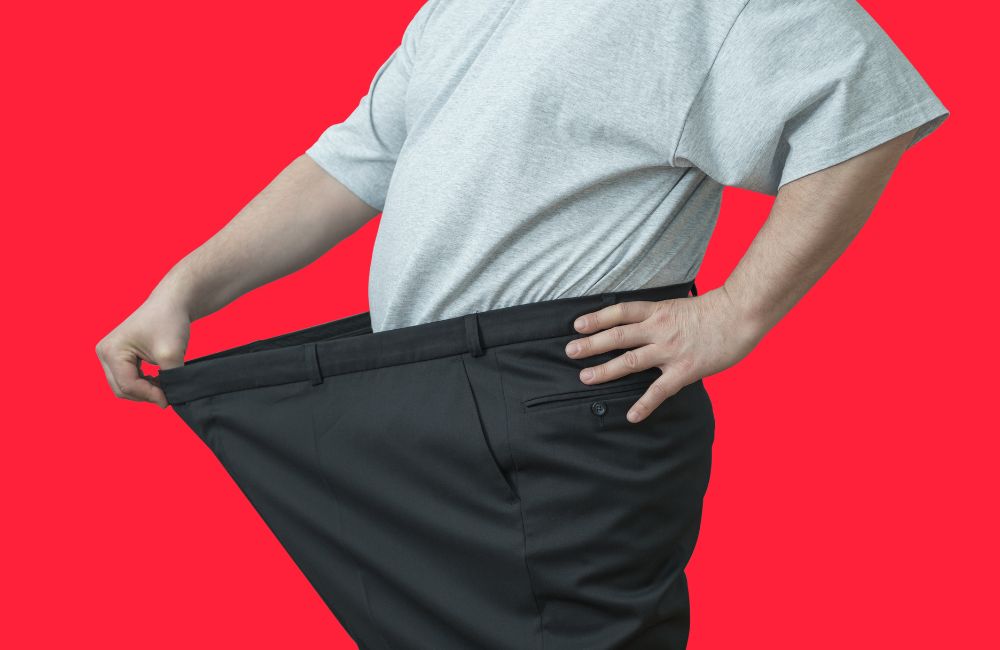
Looking for simple, but effective ways to lose weight fast in a week? In this article I’ll share 6 crazy simple ways to lose weight quickly, all backed by science. Read on to find out.
When it comes to losing weight, everyone is different. Despite the one-size-fits-all diet plans spread across magazine covers, weight loss depends on many factors personal to each individual.
Whether you are looking to lose weight for health reasons or to feel more comfortable in your skin, chances are you are hoping to get it off quickly.
Unfortunately, rapid weight loss is not sustainable for most. Rapid weight loss plans also don’t work for everyone.
A healthy weight loss, according to experts, is around 1-2 pounds per week. Losing weight fast can wreak havoc on your health and is not recommended.
However, there are some ways to boost your weight loss and still make it sustainable. Below are the top 6 science-backed ways to lose weight quickly and keep it off.
6 Simple Ways to Lose Weight In a Week, Backed by Science
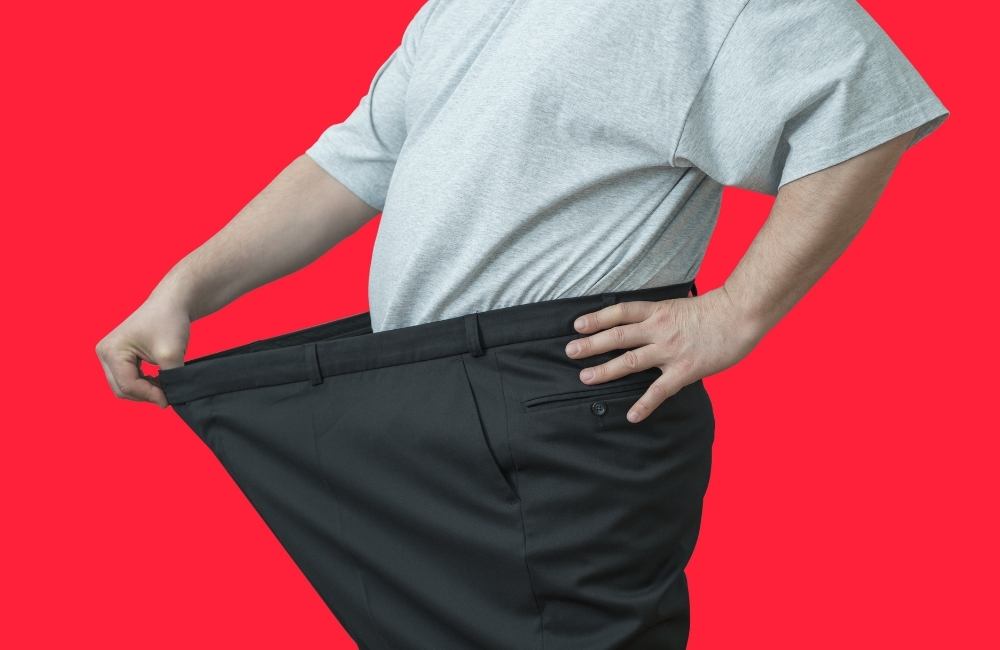
Also check out:
How to Lose 10 Pounds In a Month: 10 Science-Backed Tips
5 Things To Stop Doing Immediately To Lose Weight
20 Best Healthy Snacks for Weight Loss, According to an RD
1. Count Your Macros
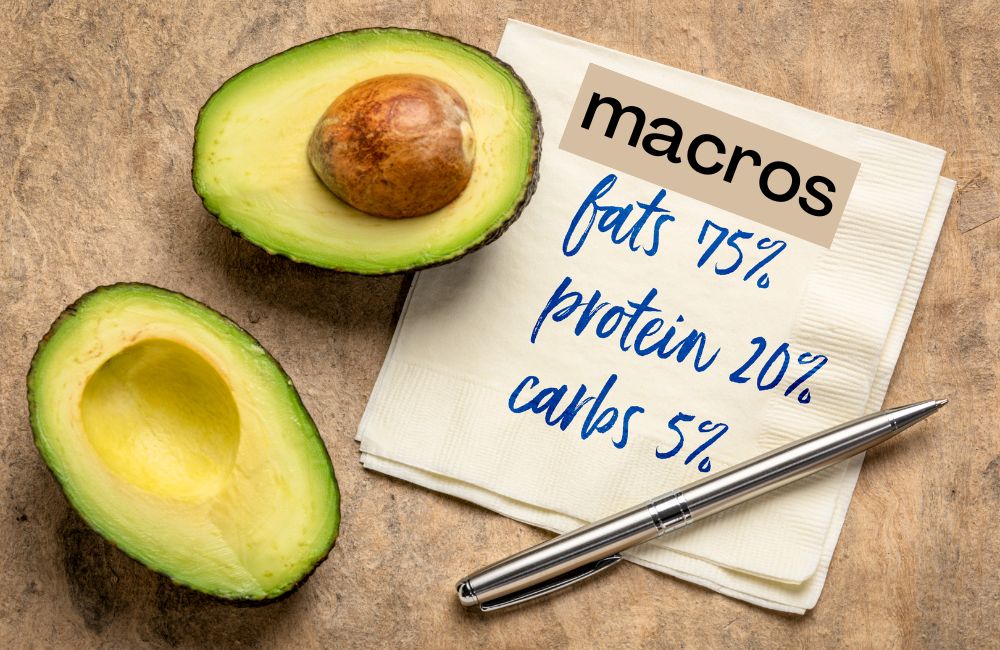
No, this doesn’t mean downloading the latest macro counting app or breaking out the calculator.
Instead, focus on incorporating more protein and healthy fats versus carbohydrates. These nutrients are more filling and will allow you to feel more satisfied after your meal so you will eat less. Choosing high-fiber foods can also help with this.
Swapping out your morning bagel for a few scrambled eggs can make a bigger difference than you might think. Instead of driving yourself crazy by counting calories or measuring out every item on your plate, choose more filling foods.
Carbohydrates are great for energy, but they don’t do much to keep us full unless you choose a high-fiber grain. Protein, fats, and fiber are the key to satiety. Use this knowledge to help you build your meals and snacks. Below are some helpful tips to add more of these to your diet.
2. Eat More Protein

Protein is one of the most filling macronutrients. The current recommendation for protein intake for the average adult is 0.8-1 grams of protein per kilogram of body weight.
For those looking to follow a high-protein diet, research has found 1.2-1.6 grams per kilogram to be effective (1).
Good sources of protein include meat, fish, seafood, poultry, eggs, dairy, and soy. Aim to incorporate a protein source at every meal and snack to make sure you are meeting your needs.
3. Eat More Healthy Fats
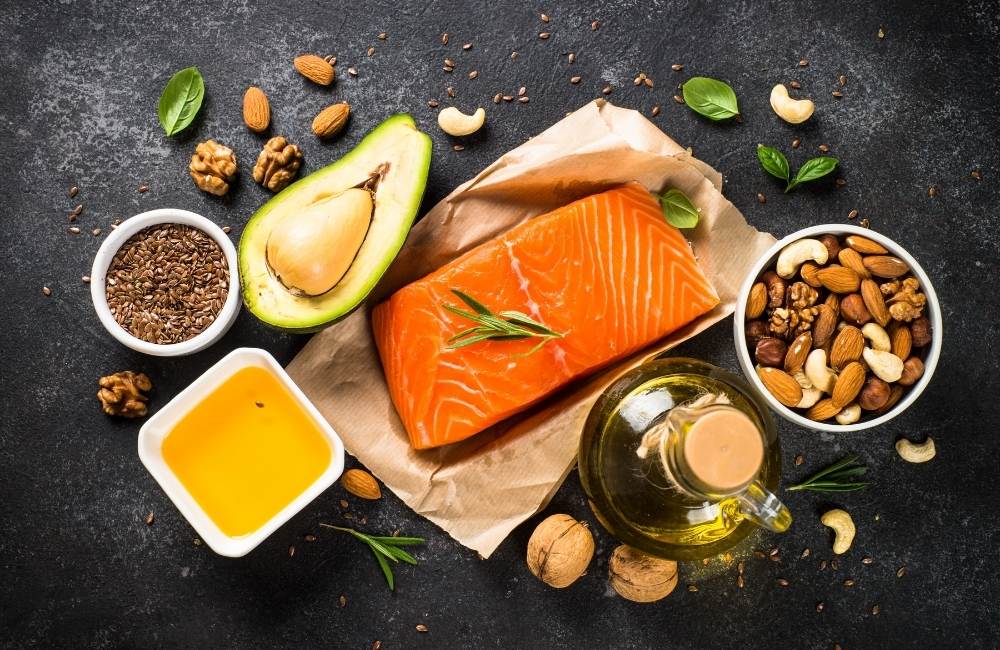
The next most filling macronutrient is fat. There are good fats and fats that should be limited to moderation to meet your weight loss goals.
To make sure you are adding the right fats into your diet, choose more monounsaturated and polyunsaturated fats.
These are fats found in plant foods whereas saturated fats are found in animal products.
Mono and polyunsaturated fats can help improve cholesterol levels and lower your risk of developing heart disease.
Good sources of these fats include olives and olive oil, nuts, seeds, avocado, and fatty fish such as salmon, herring, and sardines (2).
4. Add More Fiber to Your Diet
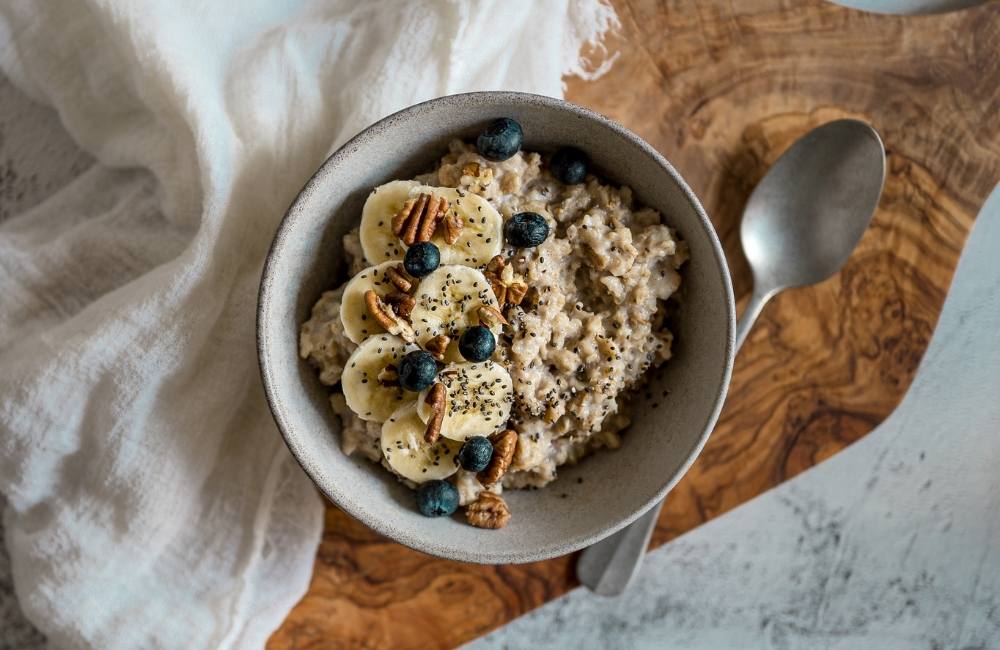
Fiber is a type of carbohydrate that our body is unable to digest. Instead, it helps to bulk up stool and soften it to maintain digestive health.
Fiber takes up more volume in the stomach and takes longer to digest. This helps to create fullness without consuming high amounts of calories (3).
The current recommendation for fiber intake is a minimum of 25 grams of fiber per day for women and 38 grams a day for men. High-fiber foods include whole grains, fruits, vegetables, nuts, seeds, beans, and legumes. (4).
5. Cut Out the Processed Carbs
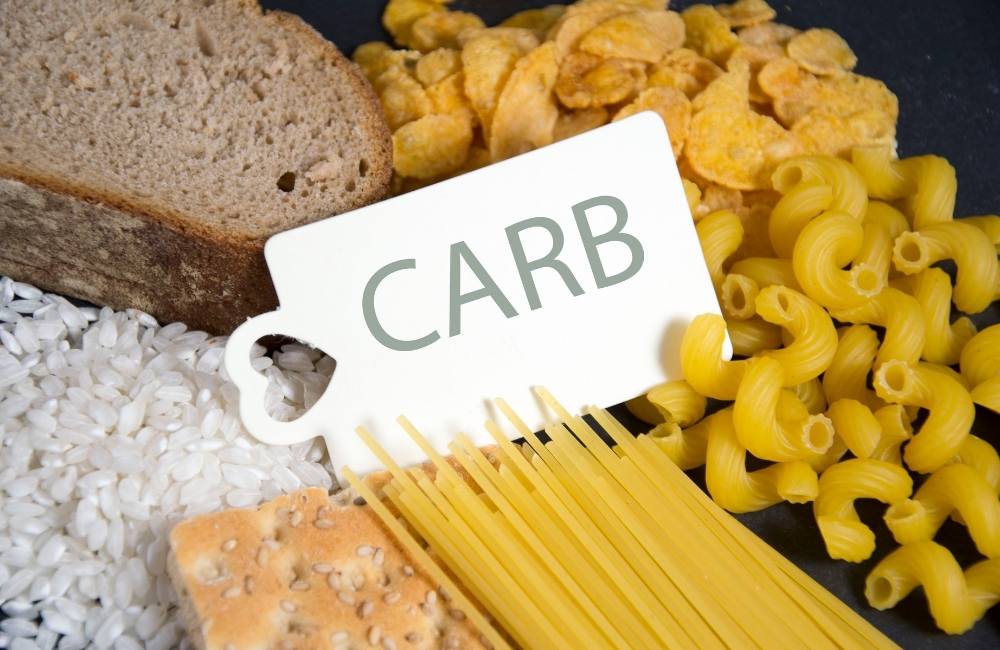
Highly processed foods are not good for you. Despite the claims on some food labels, processed foods often contain a lot of carbohydrates, added sugars, and artificial ingredients.
When consumed in high amounts, these foods can lead to weight gain. Therefore, reaching for highly processed diet foods is not recommended either.
Many highly processed foods are high in refined carbohydrates. Research has found that a low carbohydrate diet is favorable for weight loss.
This diet focuses on reducing refined carbohydrates and replacing them with high-fiber sources, such as whole grains.
This helps to improve hunger levels throughout the day resulting in a reduction in overall caloric intake.
Don’t confuse a low-carb diet plan with restrictive fad diets such as the keto diet. This diet restricts total carbohydrates to a minuscule amount that is not sustainable for most (5, 6).
6. Keep Your Body Moving

Movement is essential for any weight loss routine. Those who are sedentary will notice the biggest difference in their weight by adding more movement.
For those who are already active, consider a more challenging routine or try something new.
The recommendation for exercise set by the Center for Disease Control and Prevention (CDC) is for adults to get at least 150 minutes of aerobic exercise each week.
This adds up to about 30 minutes per day of cardiovascular exercises such as walking, swimming, jogging, biking, and more.
It’s also recommended to incorporate at least 2 days of strength exercises. These should work out all the major muscle groups (legs, hips, back, abs, chest, shoulders, and arms) (7).
Final Thoughts
Fad diets that promise rapid weight loss are not sustainable and not recommended.
A healthy weight loss is anywhere between 1-2 pounds per week however, there are some ways to jump-start your weight loss journey.
Focusing on filling nutrients, such as protein, healthy fats, and fiber, cutting out processed foods, and moving more, will help you drop those numbers on the scale at a quicker pace.
Remember to make these changes in a way that feels sustainable for you. That might mean focusing only on one thing first before adding another. Weight loss is a slow process.
Keep your eye on the prize and stay consistent and the results will come before you know it.

